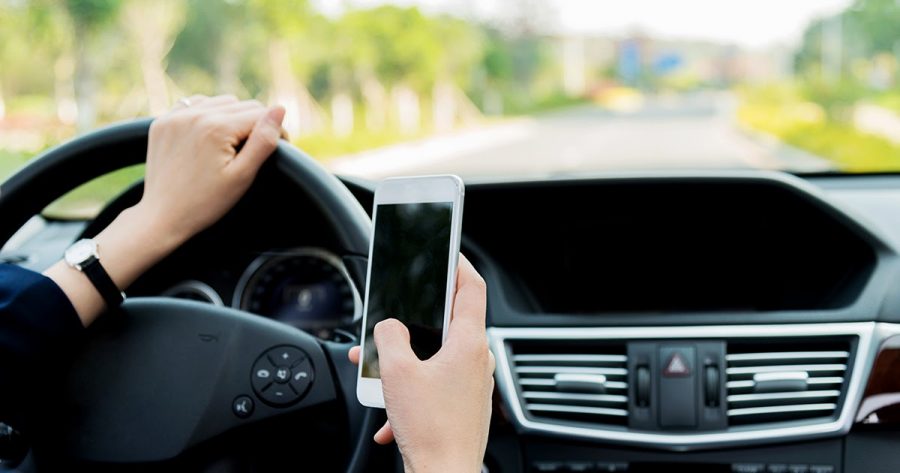Breaking the Law in an Attempt to Respond
May 3, 2020
It’s only one text, and the light is red.
With the easy and commonplace use of electronic devices, teenagers nowadays are most likely on their phones while driving. It may seem straightforward to send a quick text while driving, but in fact it is not. According to research conducted by INSERM, a biomedical agency, “when the brain tries to do two things at once, it divides and conquers, dedicating one-half of our gray matter to each task.” It seems evident that one of the tasks will always be more superior than the other. This causes people to slightly focus more on their phone than the road.
We think it’s so easy to do two of the things we do most commonly at the same time. Switching the song isn’t that hard; then a quick text comes up that isn’t hard to answer either; but then a Snapchat pops up and here you are staring at your phone with your foot on the gas.
The consequences for texting and driving can be severe and not only affect you, but those around you. In Massachusetts, if one is pulled over for texting and driving the first offense fine is $100, and the second offense is $250. It is illegal to use your phone in any way while operating a vehicle in the state of Massachusetts. Not only is that a lot of money and breaking the law, but the possibility that you get into an accident is much greater. In that case, you are not only endangering those in the car with you, but everyone around you.
Many people are guilty of using their phones while driving. One way this can be stopped is if those who know a friend is driving could stop all communication. If you know a friend of yours is driving, instead of asking them what they are doing, stop communicating with them until you are sure they are safely parked.
Oftentimes, the suspense and wonder of what a text or Snapchat says will cause a teen to check their phone. When someone checks their phone they lose focus on the road and might not notice if someone around them is driving poorly. These chain reactions all have a great likelihood of ending terribly.
It seems like a quick, easy check, but the reality of the situation is that the potential harm dramatically outweighs the benefits of looking at your phone while on the road
If keeping ourselves and others safe means staying off of our phones when we drive, then it seems like an easy task we as a human race can accomplish.

